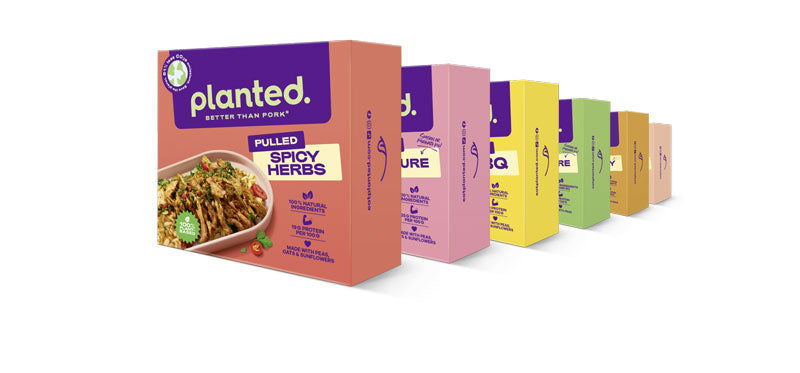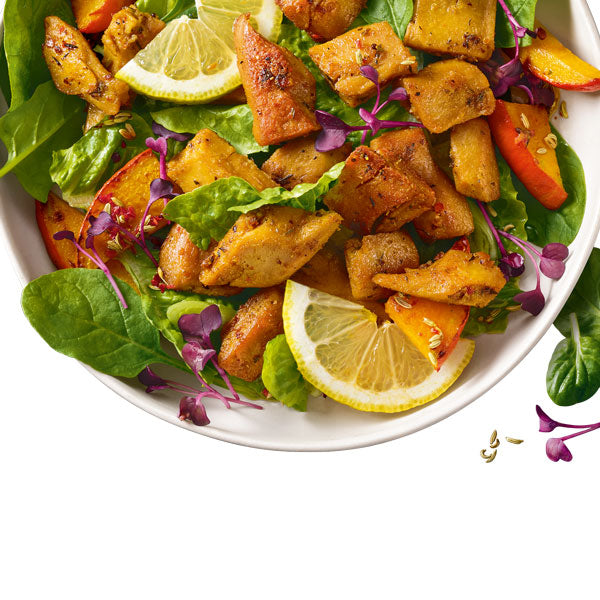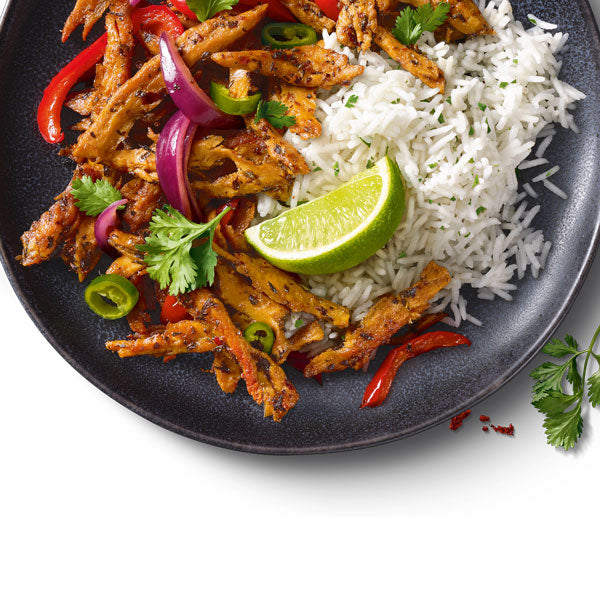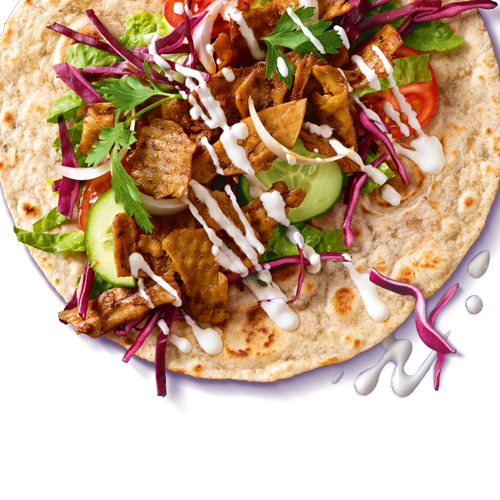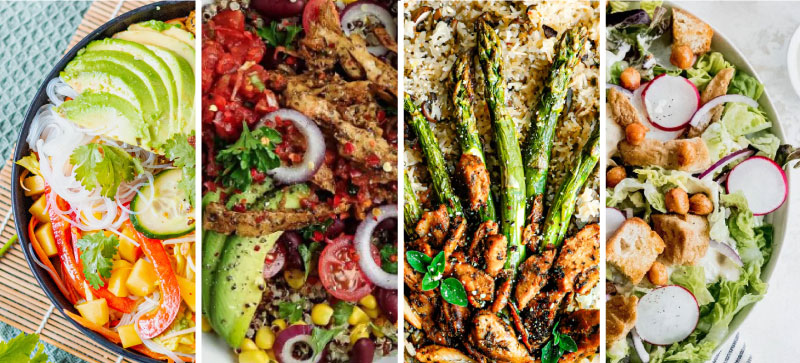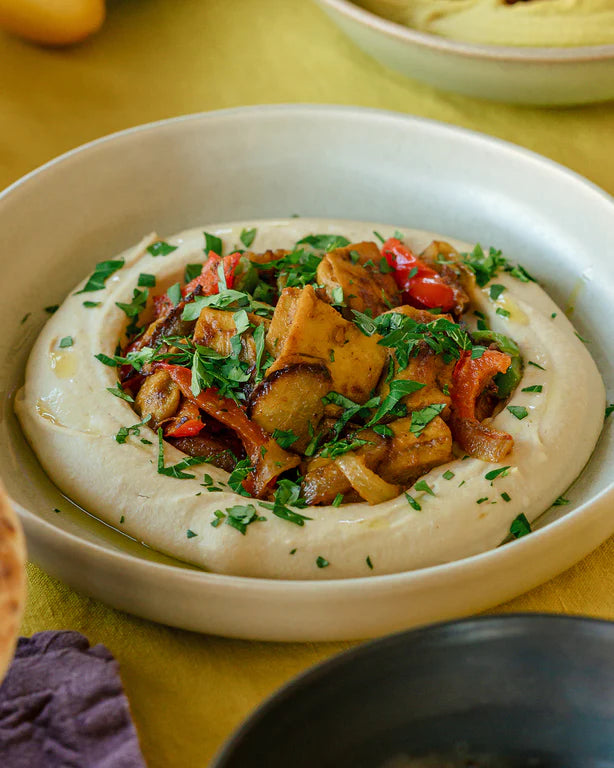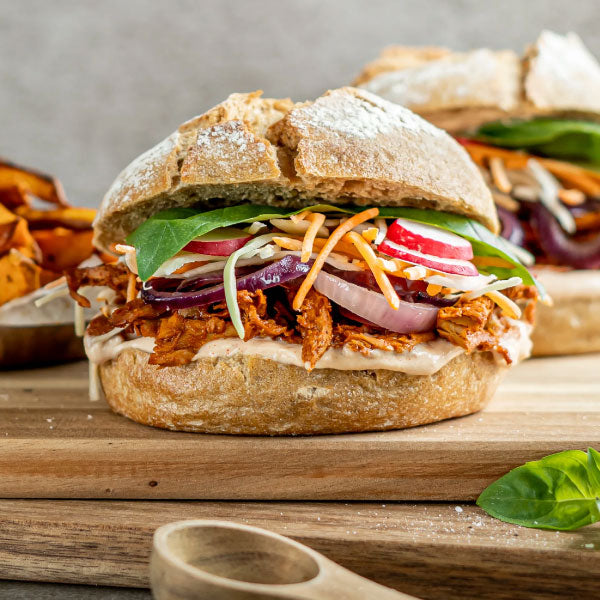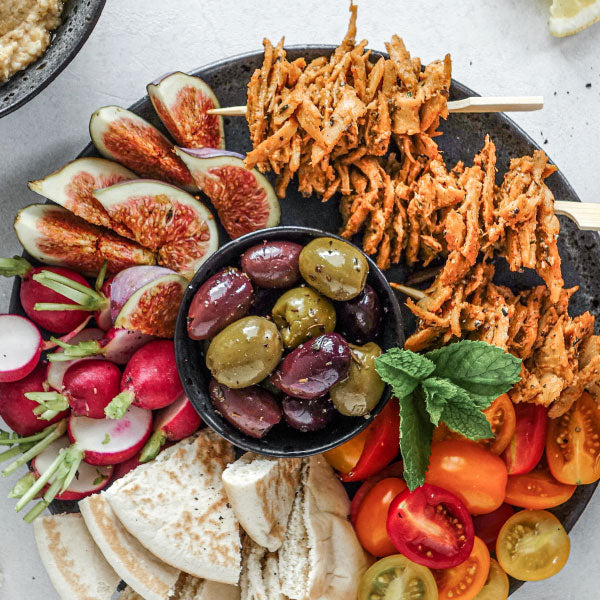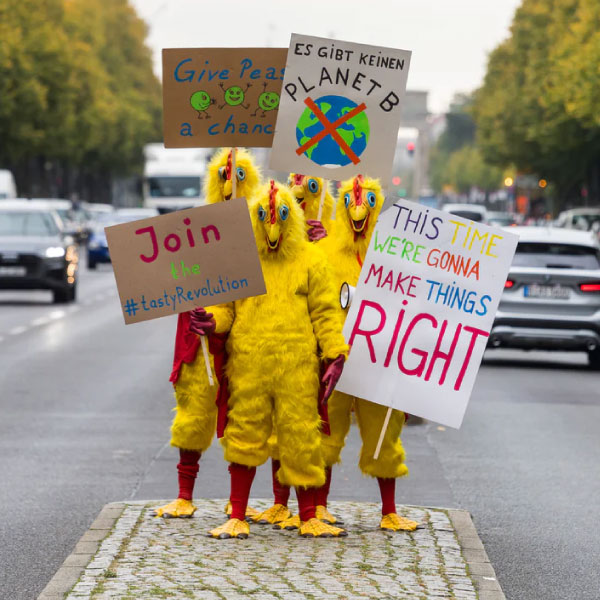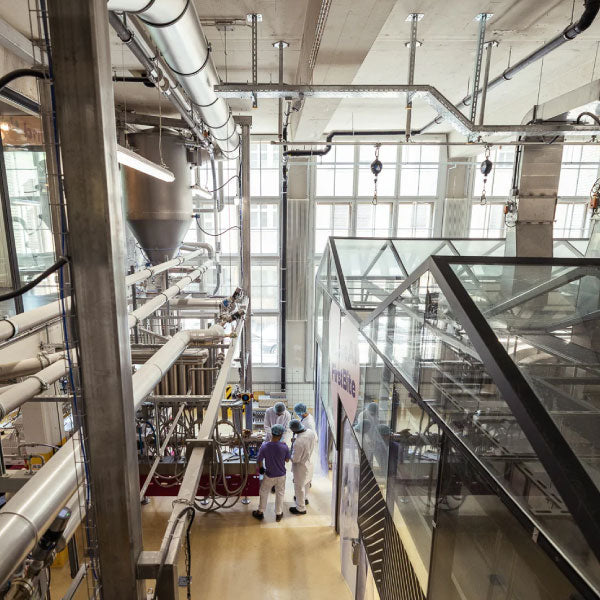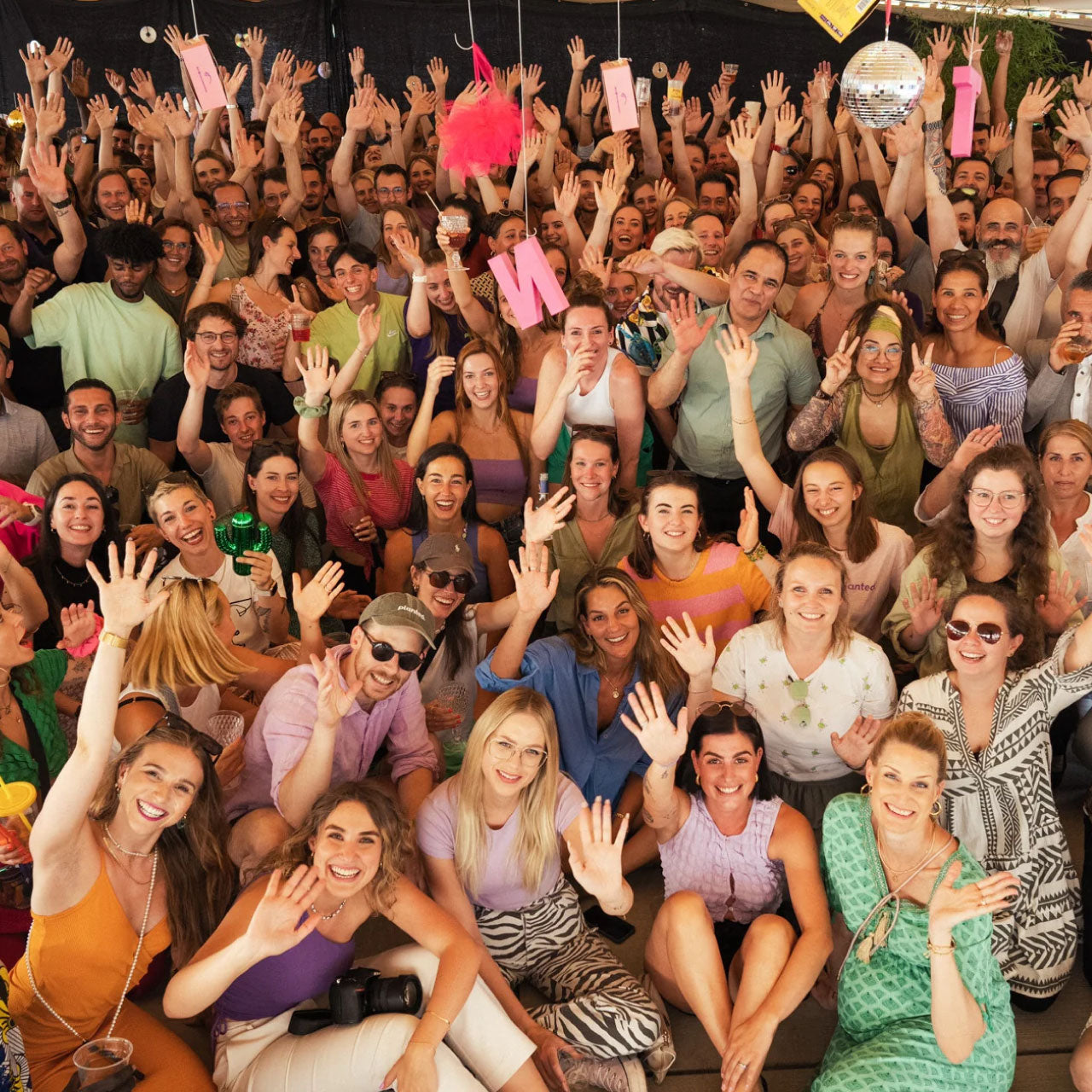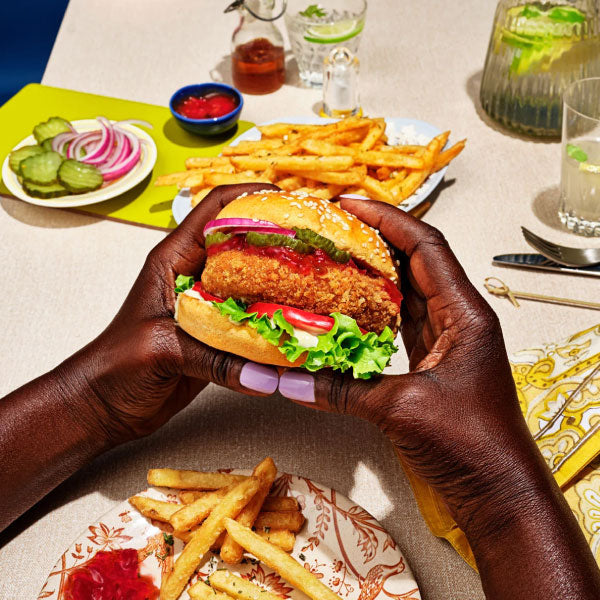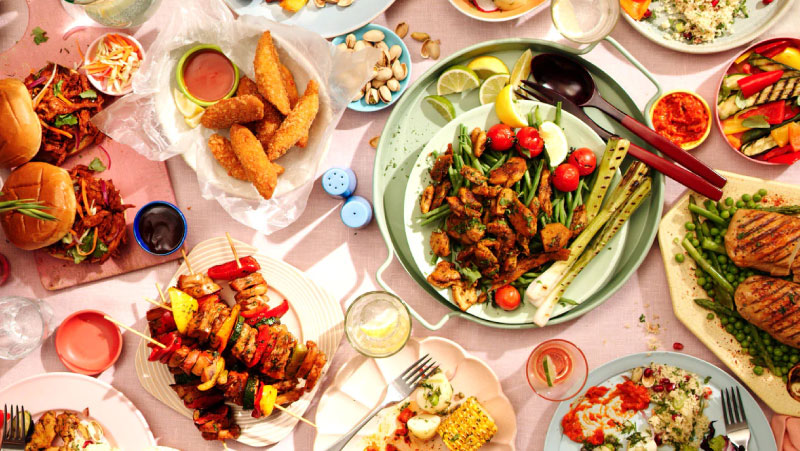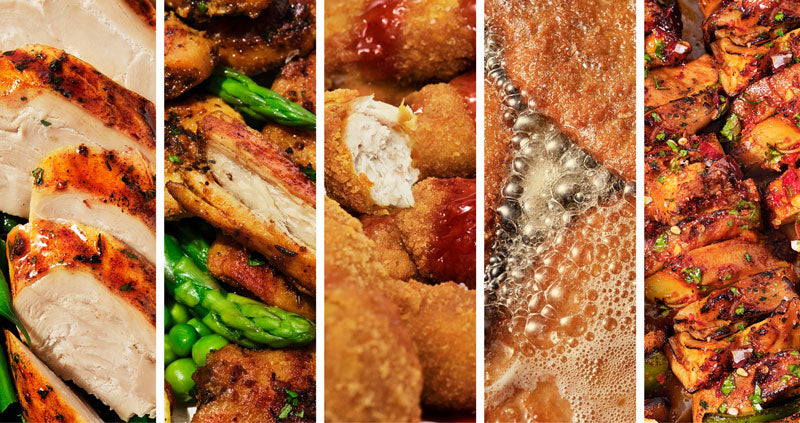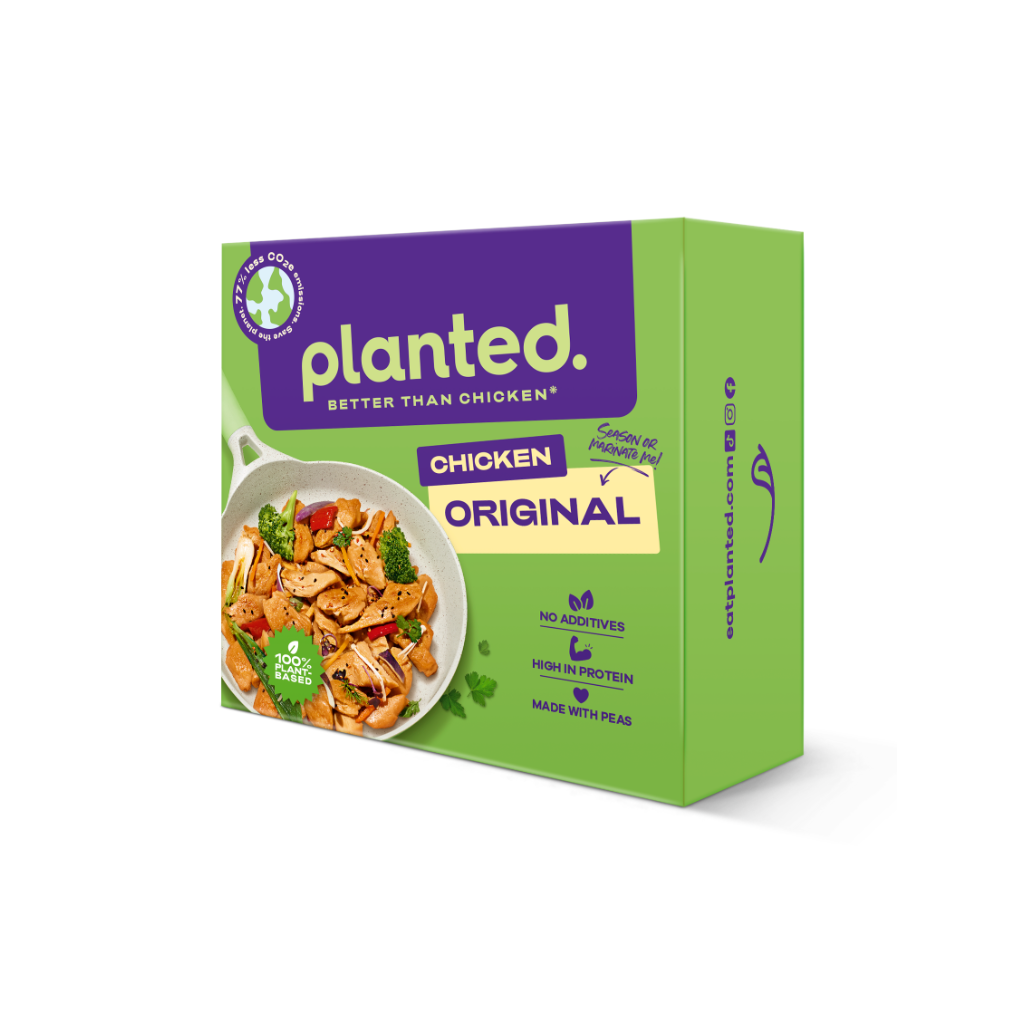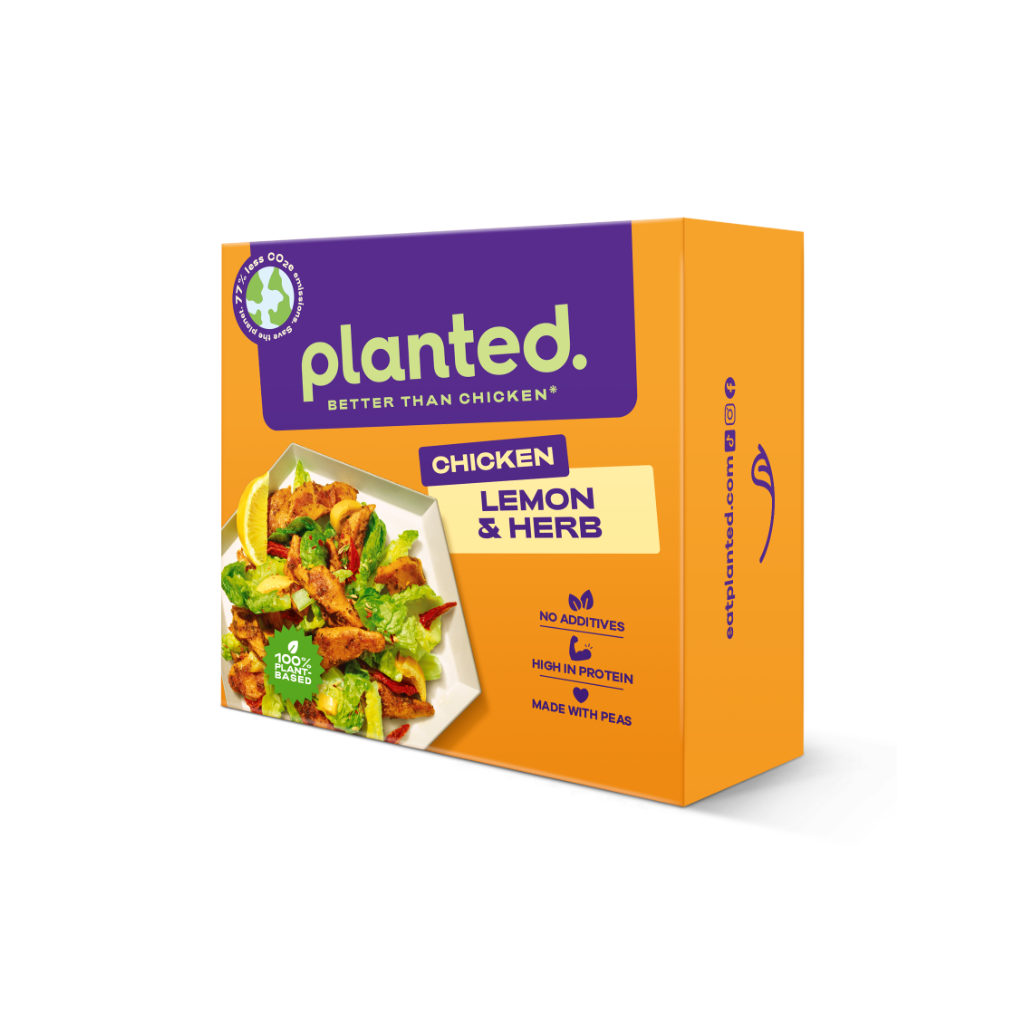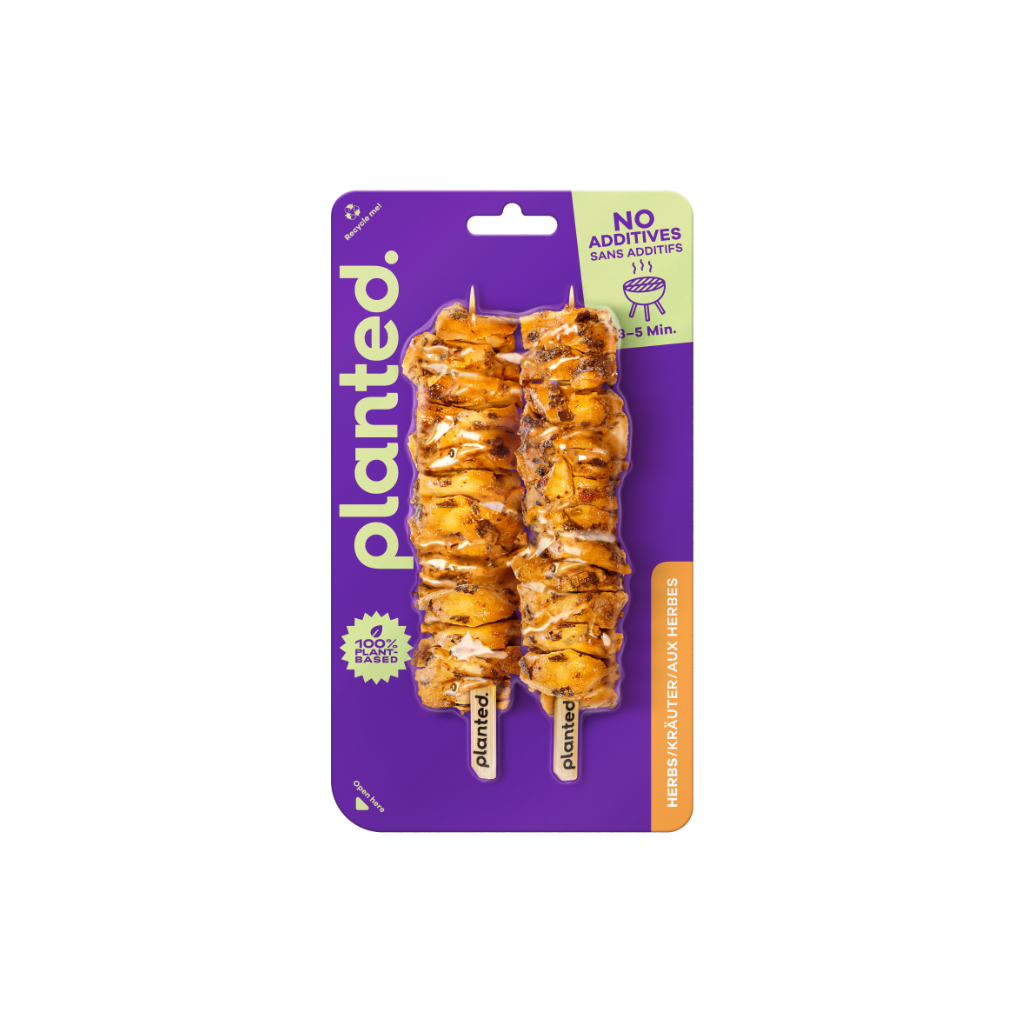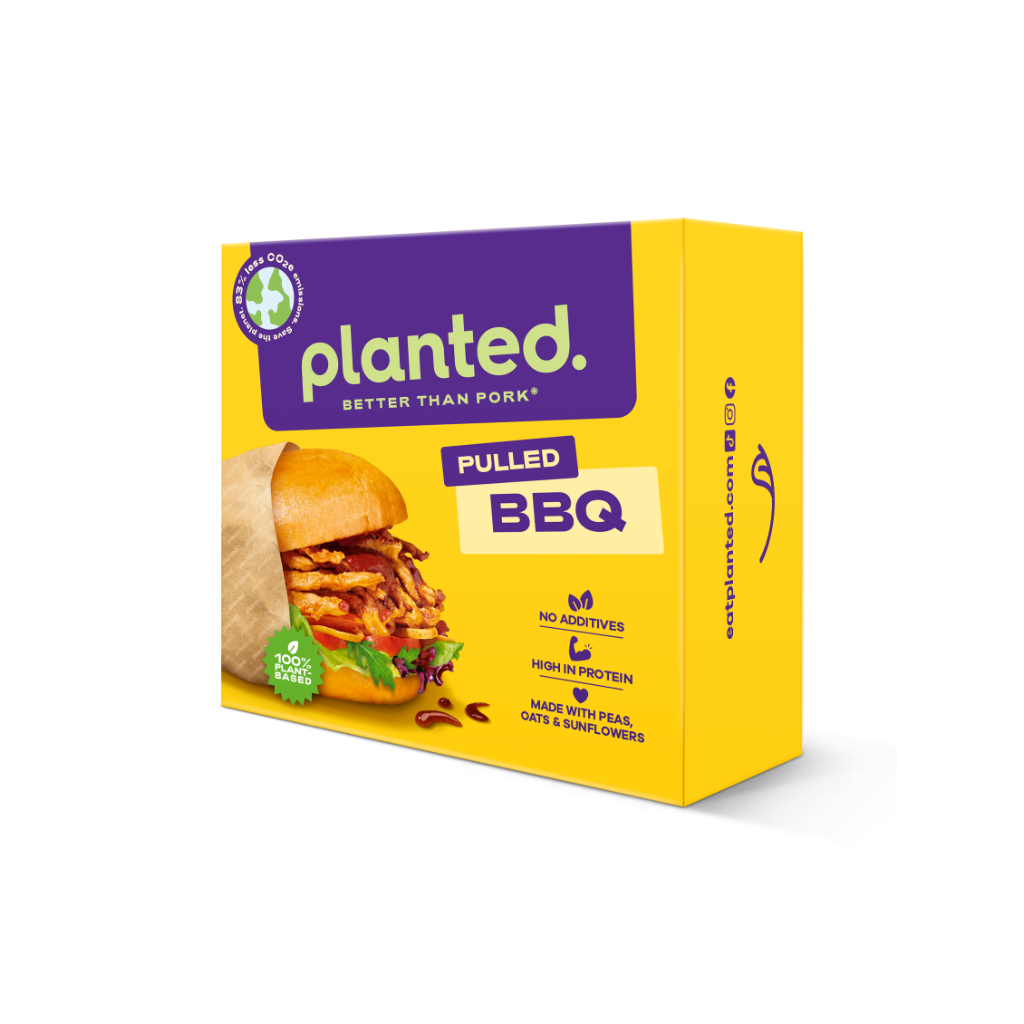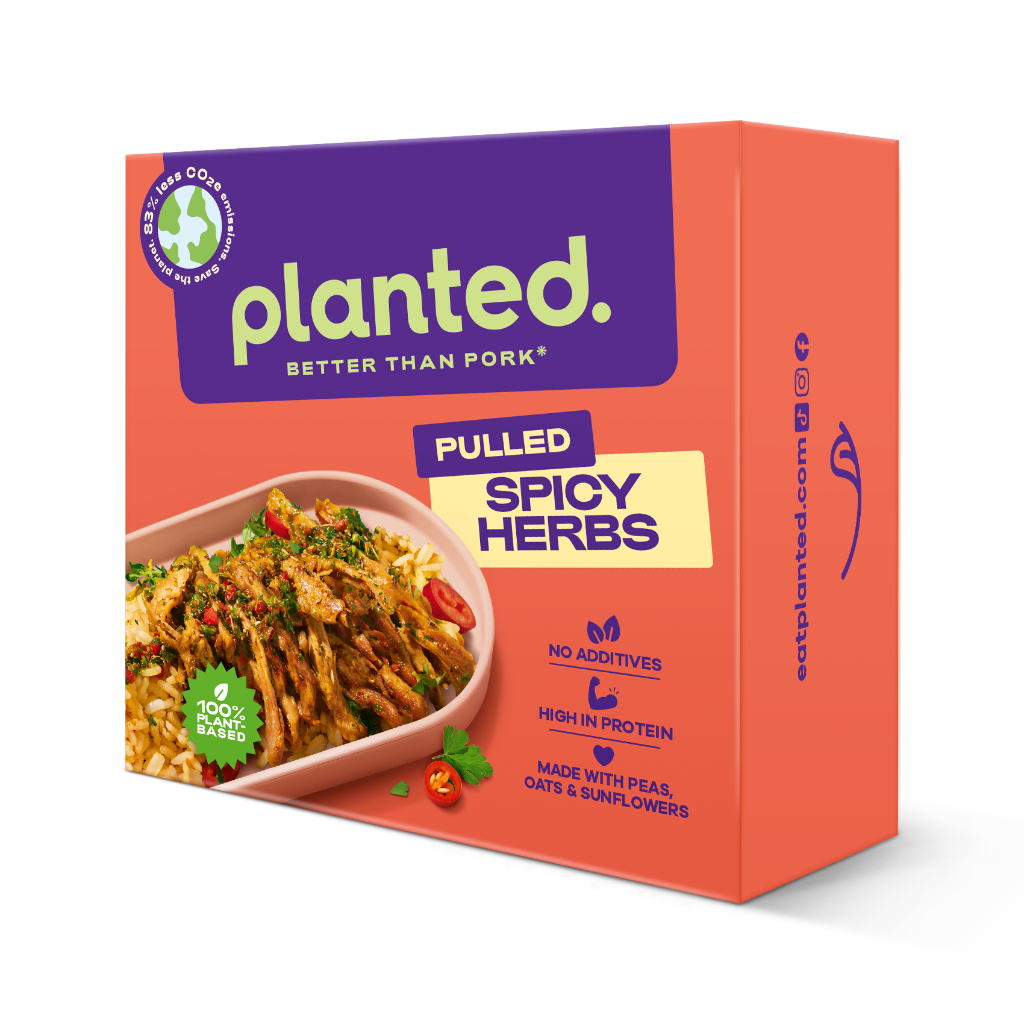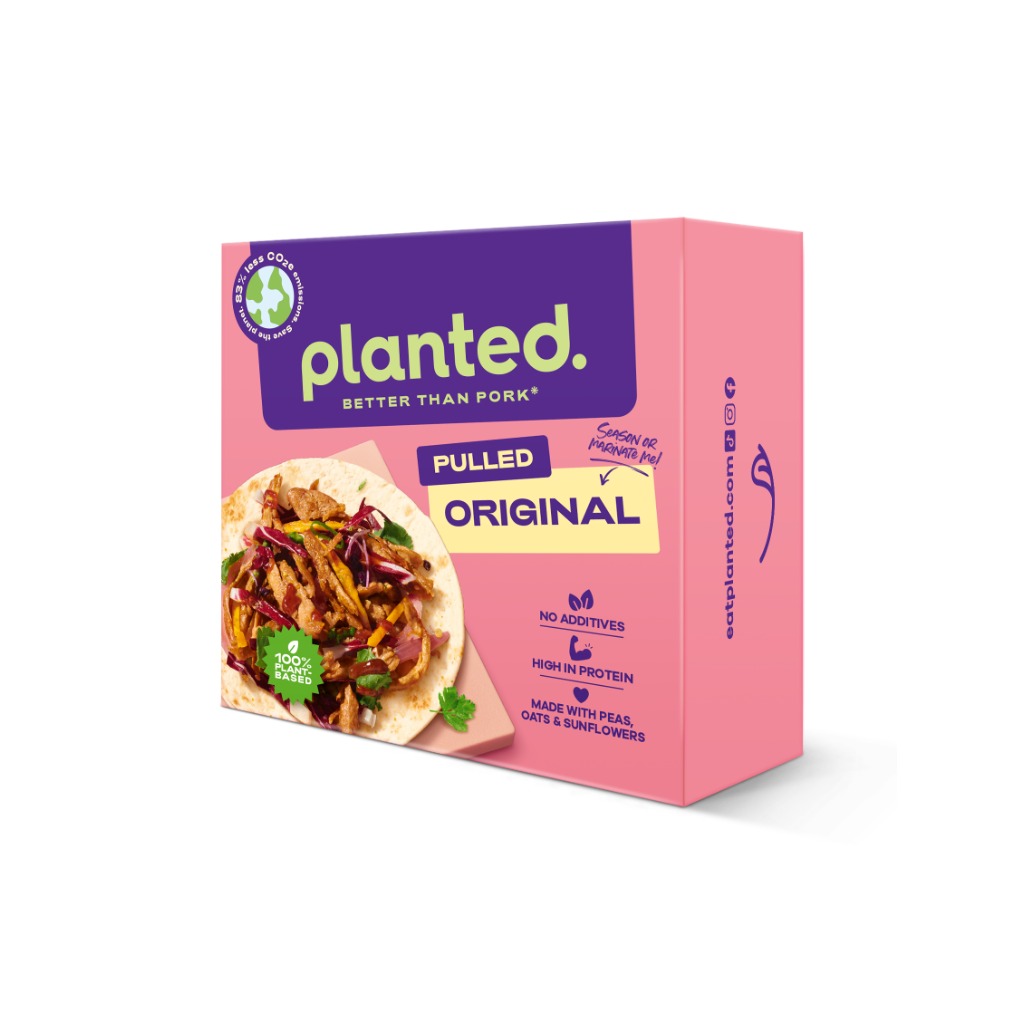Better meat than animals


The carbon and water footprints of Planted products were compared to similar conventional animal products.
-
What is a B Corp?
B Corps are purpose-driven businesses that use their power and influence to be a positive force for everyone whose lives they touch – employees, communities, consumers, and of course our planet -- not just the shareholders. The rigorous certification process has meant that our impact across all our European offices and our production plants has been comprehensively audited.As a Certified B Corp, we have joined a powerful global as well as Swiss B Corp community who meets high standards of social and environmental impact.
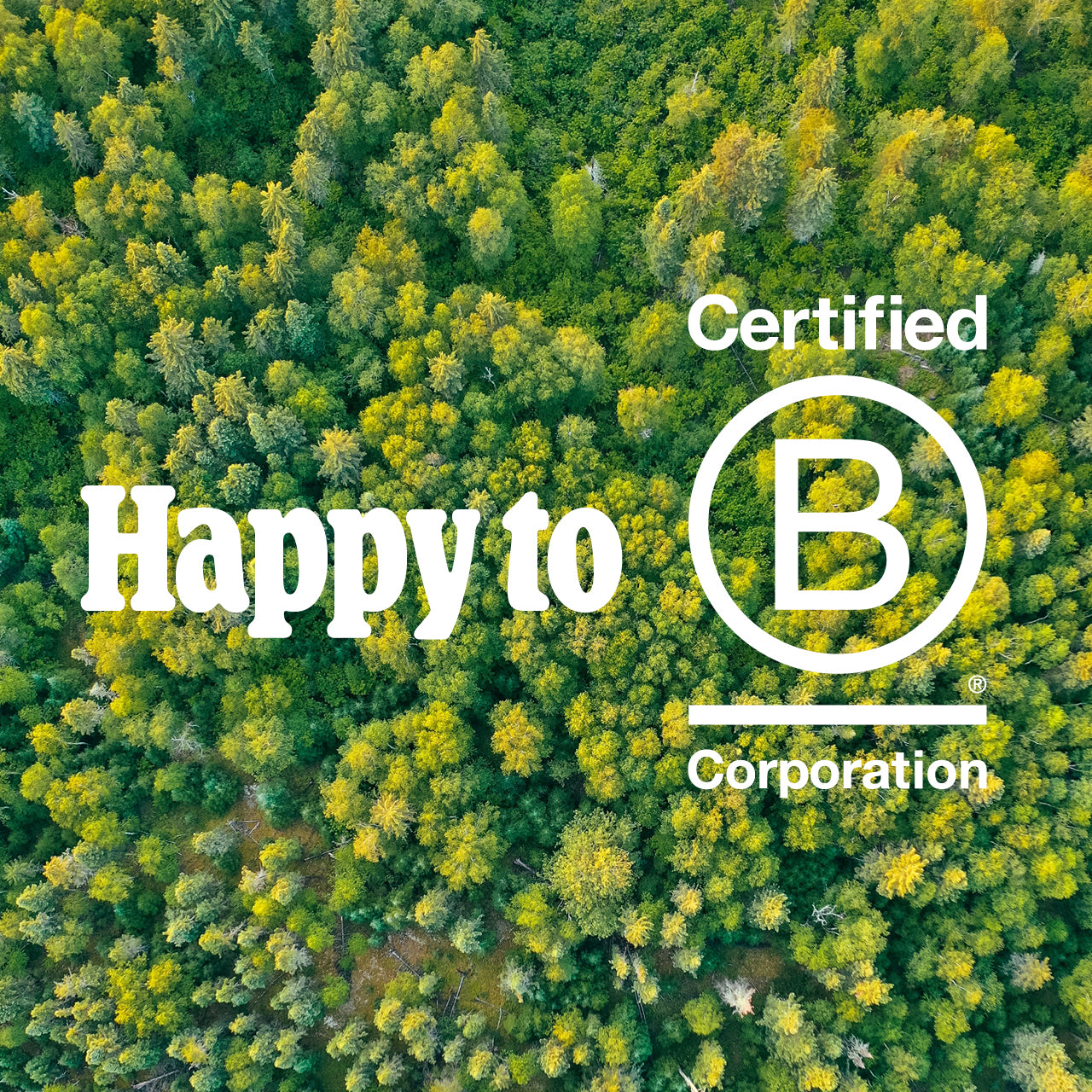
-
Why did we do it?
At Planted, we believe in the power of change. We want to radically change the way meat is perceived, produced and consumed and inspire a shift from eating animal to eating plant proteins, enabling meat eaters to make a sustainable, healthy and tasty everyday choice. We are in the business of making a positive impact on the world.
Our growth is driven by a hunger to create a sustainable, healthy, and compassionate future for all – consumers, planet and animals. We are more than a delicious product; we are a mindset. Sustainability, health, and animal welfare are at the core of our identity. We never compromise on quality and our only natural ingredients, ensuring trust with our consumers as well as partners through our commitment to excellence.
Joining the B Corp movement is the perfect way to hold ourselves accountable to this standard.
-
What comes next?
Our certification comes because of our exceptional dedication to sustainability, achieving a remarkable score of over 90 points (category: outstanding), including the recognition that our business model achieves significant resources conservation.
Planted's journey as a Certified B Corp is just beginning. The company has an array of exciting initiatives in the pipeline that will further enhance its positive impact on the world. However, that doesn't mean we don't have room to improve. We’re committed to continuous improvement across all our operations and the mandatory recertification process in three years will help us ensure we’re delivering on our commitments. We will be working to increase the positive impact of our plant-based meats by engaging with everyone we work with to create them. This includes you – we'd love to hear your thoughts anytime, just send us a message. Massive thanks for being part of the Planted community and for coming along with us this far – we are so excited for our future and the good we can do together.
Bite by bite to a more sustainable system
-
ENERGY & WATER
When planning and equipping our new production site in Switzerland, we wanted to create a smart infrastructure from the outset to minimize the environmental footprint of our operations.
Renewable energy
We use renewable energy for our production facility and offices in Switzerland. We even use 100% Swiss hydroelectric power. And to ensure no energy is wasted, we use the heat generated during production to heat our offices and other parts of the building.For our future energy needs, we are looking into the best green energy mix available to us, and plan to supplement the power supply with our own solar panels on a nearby southern hill. We'll keep you posted on this!
Saving water drop by drop
We are careful with resources and use only as much as necessary. In our production, water is mainly used for the product itself as an ingredient and for cleaning. We only use as much as necessary to maintain our cleaning routine, which has the highest standards for hygiene, quality and safety. To reduce water consumption as much as possible, we have installed office-wide water conservation measures. We also pay attention to what goes into the wastewater: our plant is equipped with a wastewater collection tank where production wastewater is mixed and pH-neutralized before it enters the sewer system. -
INNOVATION
As a foodtech start-up exploring new frontiers, we are particularly keen on innovation. We have focused on building a strong in-house R&D team to identify new alternative proteins and develop new biostructuring methods and technologies. We believe that in the future, biostructured proteins will be superior to animal meat in terms of taste, sustainability, health, efficiency and price. We are committed to using only 100% natural ingredients and no additives in all our products - making them a healthy and better option for everyone. We get really euphoric when we think about what product we're going to launch next and believe that having a variety of options for people who want to consume less animal protein is the key to success. Plus: we love to challenge ourselves.
We have it down to a science.
-
CIRCULARITY
By upcycling by-products from other food value chains, we contribute to a more sustainable food system. Our planted.pulled contains flour made from sunflower pressings - the high-quality byproduct of sunflower oil production. What's great about this is that not only does the utilization of these pressed pellets in human nutrition make sense from a circular economy perspective, but the pressed pellets are also rich in macro- and micronutrients. Not to mention that the result is delicious. And that's just the beginning. We're working with suppliers and research institutions to make more of it happen in the future.
-
PARTNER
Sustainable procurement and supply chain support
In addition to quality and safety, we pay particular attention to social and environmental risks in our supply chain. As a first step, we are strengthening our approach to procurement decisions and the screening of key suppliers. Our supplier policy defines criteria for sustainable cooperation based on ILO labor standards and the UN Guiding Principles on Business and Human Rights and describes the prevention of environmental pollution. Where there are potential problems with suppliers and partners, we ask the necessary questions to motivate them to improve.
In addition to oats and sunflower as protein sources, our pea proteins and fibers are Planted's main raw materials. All plant-based ingredients are GMO-free. And because the cultivation of protein-rich crops in tropical regions is strongly associated with deforestation and biodiversity loss, we do not source agricultural raw materials from biodiverse rainforests.
We opt for local ingredients wherever quality allows. Right now, that means our canola oil and water come from Switzerland and our peas come from Europe. In the future, we would also like to use vegetable proteins from local production. In order to achieve this in the right quality and quantity, we have joined forces with the University of Agricultural, Forest and Food Sciences Bern (HAFL) and the company Peter Kunz e.V. (gzpk) to form a protein plant breeding project. Supported by the federal government, these partners are currently conducting initial field trials. In cooperation with the Swiss Protein Society, we are trying to put the topic of alternative proteins on the political agenda.
-
PACKAGING
Our packaging must adequately protect the product and maximize its shelf life. Otherwise, more of our product would end up in the trash. Avoiding this is a top priority for us. Planted is all about finding innovative solutions, such as the packaging for our web store. The cooler bag we ship in is made of recycled paper and is 100% recyclable, and the cooling pads are filled with tap water that can easily be drained into the sink.
-
RESOURCE EFFICIENCY
At Planted, we firmly believe that scarce resources must be used sparingly and responsibly. That's why we continuously work to optimize our production processes and eliminate waste wherever possible. For example, we recently completed a project that allows us to rework start-up losses that occur when our machines are not yet fully heated or when parts of the product do not meet our quality standards (e.g. if they are too small). With this new process, we were able to reduce losses by over 80%.
-
TEAM & COMMUNITY
In all our interactions, we place special emphasis on fairness and respect. We do not discriminate against anyone based on gender, age, race, nationality or any other non-professional classification. These are principles we all live by every day. To accommodate different needs and lifestyles, almost all jobs at Planted can be part-time, and work schedules are flexible. We offer mentoring and training to acquire new skills and support the development of our team members. We also offer on-the-job training positions. And we place special emphasis on mental health. All our team members have access to free and confidential expert counseling and coaching.
At the production site, safety always comes first. We assess risks, implement mitigation measures and design special safety training. We track and analyze accidents and near misses and implement our findings to ensure that similar mistakes are not repeated. We are currently implementing a Code of Conduct for our Board of Directors, Executive Board and senior management that describes ethical business practices and social and environmental responsibility. -
CLIMATE PROTECTION PROJECT
Our company-wide travel policy states that we consider the environmental impact of our travel options. Whenever possible, we use public transportation and explore the possibility of holding online meetings instead of in-person meetings. Sometimes, however, we have to fly. We record these unavoidable flight emissions and offset them in high-quality climate protection projects. In 2022, business flight emissions calculated using Quantiscience amounted to 30 tons of CO2-eq. We decided to support a regional project in the Lake Constance area that promotes fertile soils as natural CO₂ sinks. This climate protection program in collaboration with the Bio Stiftung Schweiz stores carbon in agricultural soils and promotes measures that contribute to climate-friendly agriculture.
More information about the project: MyClimate
-
Where do these numbers come from?
With the help of Eaternity, an independent life cycle assessment expert, we calculated the environmental footprint of our products. A life cycle assessment is an internationally recognized method for measuring the environmental impact of a product throughout its life cycle.
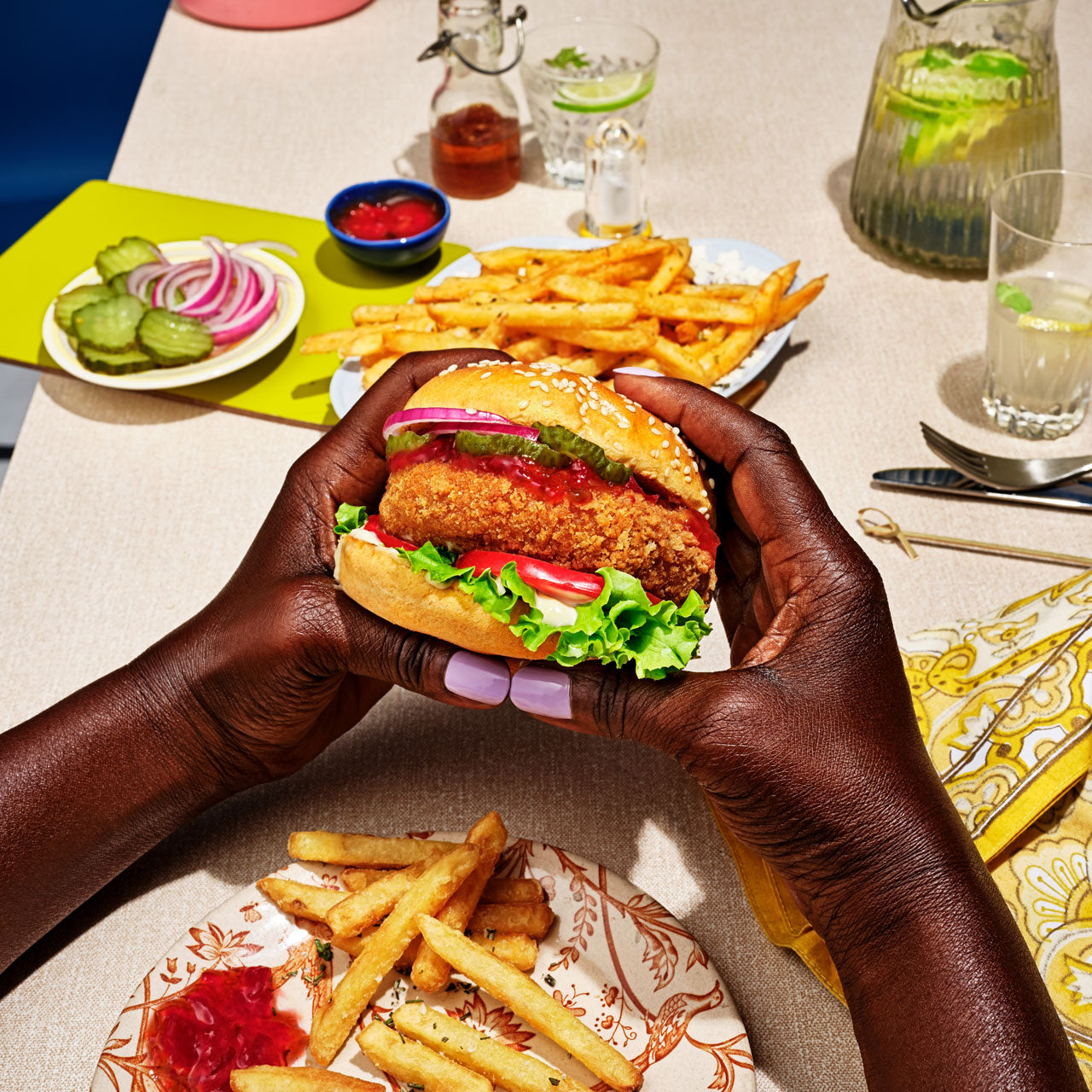
-
Carbon footprint
For the carbon footprint, all product steps were taken into account, from the cultivation and harvesting of ingredients to processing, including energy consumption in our production facility, storage and transport to stores, and disposal of packaging (cradle-to-grave).
-
Water footprint
For the water footprint, we analyzed fresh water consumption for crop irrigation and water consumption for animal husbandry and meat processing.
Every animal counts


